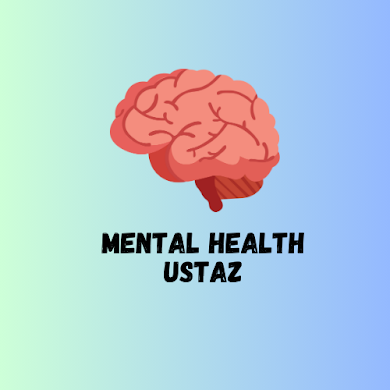Introduction: "In this article, we aim to answer the question: What are the symptoms of depression? Depression is a complex and often misunderstood mental health condition that affects millions of people worldwide. It can impact every aspect of an individual's life, including their thoughts, feelings, and behaviors. We will delve into the symptoms of depression, shedding light on this condition and providing valuable information to help those who may be experiencing it. We will also provide relevant hyperlinks to Mayo Clinic for further information and resources."
Step 1: Symptoms of Depression
- **Persistent Sadness:** One of the hallmark symptoms of depression is a pervasive sense of sadness or a "down" mood that lasts for most of the day, nearly every day. This sadness is often described as overwhelming and may be accompanied by feelings of hopelessness.
- **Loss of Interest:** People with depression often lose interest in activities they once enjoyed. Hobbies, social interactions, and even personal relationships can become less appealing or seem like too much effort.
- **Fatigue and Low Energy:** Depression can lead to constant feelings of fatigue and low energy levels. Even simple tasks can feel exhausting, making it difficult to carry out daily responsibilities.
- **Changes in Sleep Patterns:** Depression frequently disrupts sleep. Some individuals may experience insomnia, finding it difficult to fall asleep or stay asleep, while others may sleep excessively, finding it challenging to get out of bed.
- **Appetite and Weight Changes:** Depressed individuals may experience significant changes in their appetite. Some may overeat, seeking comfort in food, while others may lose their appetite and subsequently lose weight.
- **Difficulty Concentrating:** A reduced ability to concentrate and make decisions is another common symptom. This can hinder work or academic performance and may lead to increased frustration.
- **Feelings of Guilt or Worthlessness:** People with depression often experience overwhelming guilt or feelings of worthlessness. They may excessively blame themselves for past events or believe they are a burden to others.
- **Physical Symptoms:** Depression can manifest in physical symptoms such as headaches, digestive problems, and general aches and pains without a clear medical cause.
- **Thoughts of Death or Suicidal Ideation:** In severe cases, individuals with depression may have thoughts of death or suicidal ideation. It's crucial to seek help if you or someone you know is experiencing such thoughts.
- **Agitation or Restlessness:** Some individuals with depression may experience restlessness, irritability, or agitation, which can further complicate daily life.
Step 2: Hyperlinks
For more in-depth information on depression, its causes, and additional resources, please visit the [Mayo Clinic's Depression Page](https://www.mayoclinic.org/diseases-conditions/depression/symptoms-causes/syc-20356007https://www.mayoclinic.org/diseases-conditions/depression/symptoms-causes/syc-20356007). This comprehensive source provides valuable insights into the condition, its risk factors, and available treatments.
Step 3: Conclusion
Depression is a challenging condition that can impact anyone, regardless of age, gender, or background. Recognizing the symptoms and seeking help is a crucial step toward managing and recovering from depression. If you or someone you know is experiencing these symptoms, don't hesitate to reach out to a healthcare professional, therapist, or counselor. Depression is treatable, and with the right support and resources, individuals can regain their quality of life and find hope and happiness once again.
Remember, you are not alone, and help is available.
Certainly, here are seven frequently asked questions (FAQs) related to depression, along with their answers:
**1. What is depression, and what causes it?**
- *Depression is a mental health disorder characterized by persistent feelings of sadness, hopelessness, and a loss of interest in activities. It can be caused by a combination of genetic, biological, environmental, and psychological factors.*
**2. What are the common symptoms of depression?**
- *Common symptoms of depression include persistent sadness, loss of interest in activities, fatigue, changes in sleep patterns, appetite and weight changes, difficulty concentrating, feelings of guilt or worthlessness, and in some cases, thoughts of death or suicide.*
**3. How is depression diagnosed?**
- *Depression is typically diagnosed through a clinical evaluation, including a discussion of symptoms, medical history, and a mental health assessment. Healthcare professionals may also use standardized questionnaires to aid in diagnosis.*
**4. Can depression be treated?**
- *Yes, depression is treatable. Treatment options include therapy (cognitive-behavioral therapy, psychotherapy), medication (antidepressants), lifestyle changes (exercise, a balanced diet, and sleep), and support from friends and family. The most effective treatment plan often combines these approaches.*
**5. Is depression the same as feeling sad or down sometimes?**
- *No, depression is not the same as feeling sad or down occasionally. Depression is a persistent and severe mood disorder that affects an individual's ability to function in daily life. It is more than just a passing feeling of sadness.*
**6. What are the risk factors for depression?**
- *Risk factors for depression include a family history of the disorder, personal history of mental health issues, trauma or stress, certain medical conditions, and substance abuse. However, depression can affect anyone, regardless of risk factors.*
**7. How can I support someone with depression?**
- *Supporting someone with depression involves being understanding, empathetic, and patient. Encourage them to seek professional help, and offer your emotional support. Be a good listener and avoid making judgmental or dismissive comments.*
Remember that these answers are for informational purposes, and if you or someone you know is experiencing symptoms of depression, it is essential to consult with a healthcare professional for proper guidance and support.




0 Comments